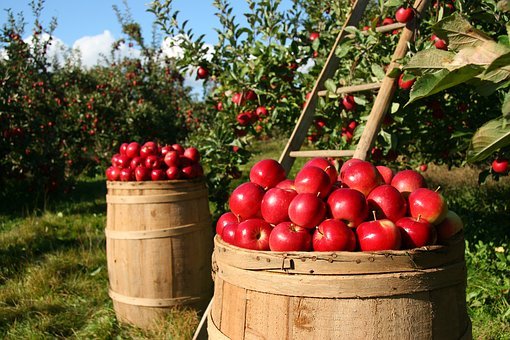Organic Buying Guide
From sprouted whole-grain sandwich breads to eco-friendly organic onesies, nearly a quarter of American shoppers now buy organic at least once a week. Since 2016, sales of organic foods rose over 20% with another comparable rise expected this year alone. And yet, for many parents just the mere mention of the word "organic" is capable of inspiring stress-level-elevating, conventionally-grown guilt. You got sticker shock and went with the regular strawberries last week. Can your kid be saved? Those eggs weren't cage-free? Shame!

But what with all the labels and promises and complicating factors, it can be not easy to figure out which way to go. Is it a given that everything your kids ingest has to be certified organic? Do you go with the grass-fed, humane-raised steak or the organic one fed with grain? Does saying a fish is organic actually mean anything? Are all those evil old inorganic foods, even the ones at the local farmer's market, necessarily BAD? You need a PhD to decipher those labels of honor that now adorn virtually every product, even the ones that can't possibly be all that good for you. Here's the guide to the bottom line on going organic.
Foods With Benefits
The verdict on whether or not conventionally grown foods are going to kill us all is still up in the air. Despite many studies, scientists have yet to agree definitively that all those scary sounding agricultural chemicals and pesticides found on produce do indeed cause cancer. But, according to the NIH and the Academy of Sciences, ongoing exposure to pesticides renders kids in particular more vulnerable to health problems, with a risk of neuro-developmental damage in particular.
A recent yearlong study of pesticides and children published in the journal Environmental Health Perspectives found that kids eating conventional foods had a family of pesticides in their systems related to nerve agents used in World War II. Okay, that really doesn't sound good. But here's the good news, when the same kids switched to organic fruits, veggies and juices, the pesticides in their system disappeared within a day.
And research published last fall in the Journal of Agricultual and Food Chemistry (we read it so you don't have to) showed that organic produce contains more nutrients and higher levels of vitamins than their conventional counterparts.

Locally Grown vs. Organic
So how do you choose between the organic apple that's been in a truck for three days and the non-organic one on the farmer's tree in the next town over? For a growing contingent, going "locavore" is the newest, crunchiest way to eat well. Allen Zimmerman, the produce guru of the Park Slope Food Coop in Brooklyn, NY, says he wouldn't hesitate for a minute to eat anything at local farmer's markets even if it wasn't organic. "You know the food hasn't traveled long distances to get to you. It's seriously fresh. And getting an official organic label is expensive as well as especially difficult on the East Coast so many small, local farms forego the certification but raise food as minimally treated as possible."
Decoding Badges of Virtue: What do the eco-labels mean?
100% Organic. Completely free of antibiotics, hormones, pesticides, bioengineering and chemical fertilizers.
USDA Organic. At least 95% free of all the above scary-sounding stuff.
GM-Free. Free of genetically-modified ingredients.
Made with Organic Ingredients. At least 70% virtuous.
All-Natural. Doesn't contain synthetic or artificial ingredients (flavors, colors, chemical preservatives). With the exception of USDA-approved meat and poultry, there is no organization to verify this manufacturer's claim.
Free-range. Poultry that has "access" to the outside, per the USDA.
Certified Humane. Raised humanely with ample space, shelter, fresh water and feed with no added hormones or antibiotics from birth through slaughter (that part's not so humane).
Grass-Fed. Pasture-raised and free-roaming rather than fed at high-grain feed lots with higher pesticide and saturated fat rates.
Cage-Free. All that the name implies, a better guarantee of healthy conditions than the label free-range.
Hormone-Free. Mostly relating to dairy products produced without the synthetic hormone (rBGH), linked by some to health problems.
Thanks for using eSteem!
Your post has been voted as a part of eSteem encouragement program. Keep up the good work! Install Android, iOS Mobile app or Windows, Mac, Linux Surfer app, if you haven't already!
Learn more: https://esteem.app
Join our discord: https://discord.gg/8eHupPq